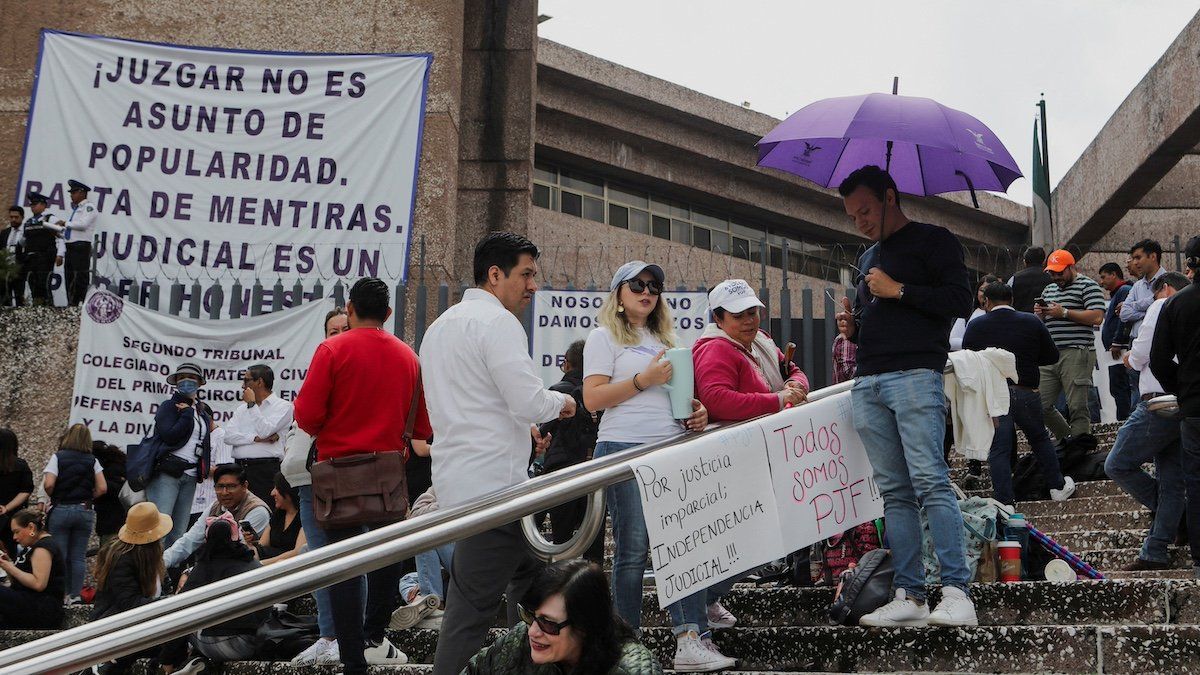Mexico’s federal courts saw thousands of judges and their employees launch a strike on Monday against a proposed judicial overhaul that would force all federal judges in the country to stand for election. They also object to the proposed elimination of the system that handles career development and promotions within the judicial system and say the proposed changes will rob Mexico of judicial impartiality.
But outgoing President Andres Manuel Lopez Obrador, who has accused many judges of being corrupt, says his proposed reforms will help reduce corruption. Obrador sees the judicial reform as part of his “Fourth Transformation,” which he claims will make Mexico a more equitable and democratic society.
AMLO’s proposal has
spooked the markets, but with majorities in Congress and his protege
Claudia Sheinbaum soon taking over as president, the reforms will likely move forward. Undeterred by the long odds, the judges, clerks, and other judicial workers who went on strike are vowing to continue until AMLO backs down.
